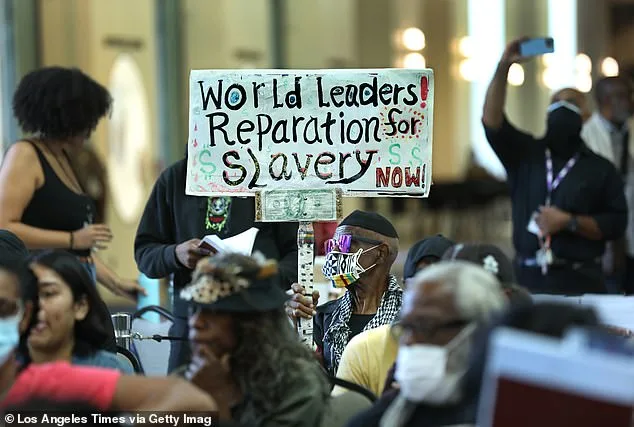Reparations advocates had the wind in their sails last year.
Cities across the US set up teams to hash out plans to compensate black people for the legacy of slavery, taking their cue from a successful pilot in Evanston, Illinois.
The landscape in 2024 is very different.
Squad member Cori Bush, the Missouri Democrat who has championed payouts, is under investigation for campaign spending violations.
Her bid for a $14 trillion federal compensation package is dead in the water.
The reparations task force in Detroit — a hub for African-American culture — has descended into a ‘shambles’ of quitting and in-fighting.
And California’s black lawmakers this week backtracked on plans to pay $1.2 million to each resident.
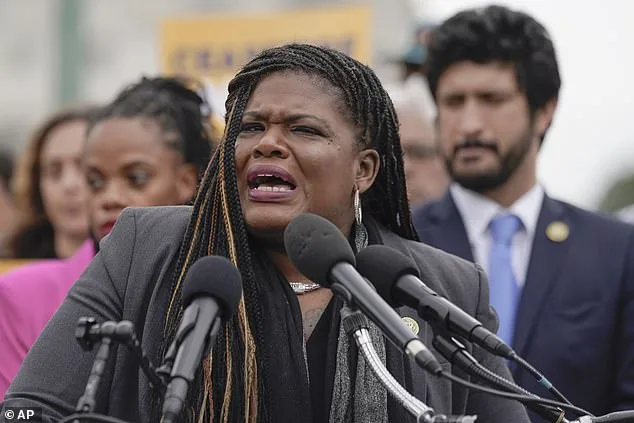
While many black voters are keen to get checks in the mail, only a fraction think they’ll see such a day in their lifetimes.
Mike Gonzalez, an analyst at the conservative Heritage Foundation, said support for reparations peaked amid the protests over the police killing of George Floyd in 2020.
Now, it is waning, he added.
‘Like diversity, equity, and inclusion (DEI), Critical Race Theory, anti-racism trainings, and other features of the collective hysteria, the call for reparations has begun to fall apart under intense opposition by the American people,’ he told DailyMail.com.
Supporters of reparations say it’s time for America to repay its black residents for the injustices of the historic Transatlantic slave trade, Jim Crow segregation and inequalities that persist to this day.
From there, it gets tricky.
There is no agreed framework for what a scheme would look like. Ideas range from cash payouts to scholarships, land giveaways, business startup loans, housing grants, or statues and street names.
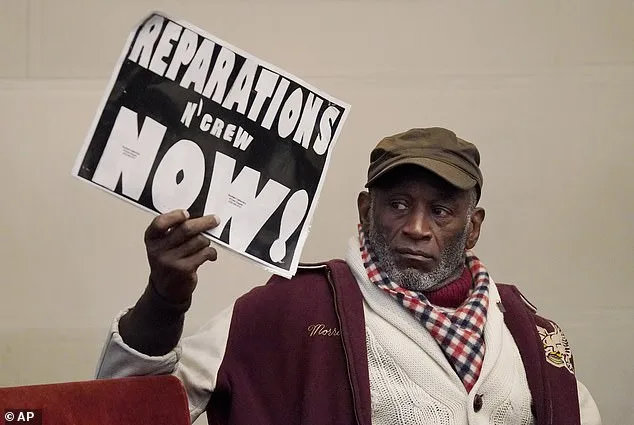
Critics say that payouts to selected black people will inevitably stoke divisions between winners and losers, and raise questions about why American Indians and others don’t get their own handouts.
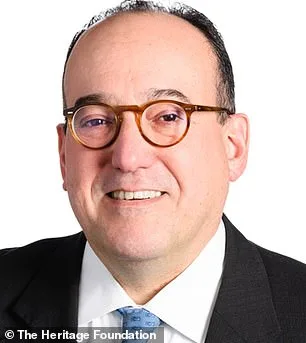
The pro-reparations movement took a major hit this week with revelations that Bush is being investigated by the DOJ.
The squad member and progressive has spent more than $750,000 on security since she was elected in 2020, including payments to her husband.
She denies any wrongdoing, but faces being booted from Congress if she’s found guilty.
The allegations hurt her signature piece of legislation — a $14 trillion federal package for black Americans to atone for chattel slavery and centuries of racist policies that followed.
The bill was floundering even before her probe over iffy payments.
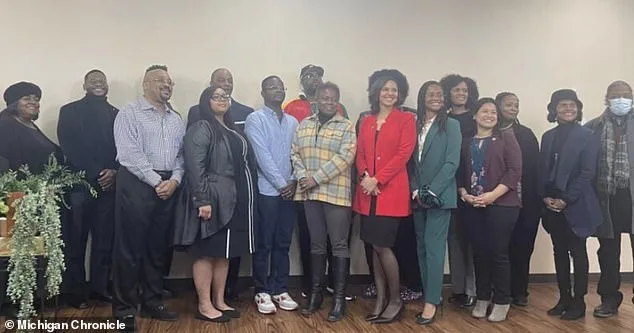



Similar resolutions have been introduced at every congressional session since 1989 and have never won enough support for a floor vote.
The outlook is not much better in Detroit, where the city’s reparations task force is mired in resignations and in-fighting.
The body was shaken last year by the death of member Dr. JoAnn Watson.
Then followed the exits of Lauren Hood, Maurice Weeks, Allen Venable, CaMille Collins, and Anita Belle.
In departing emails, members called the body ‘time-consuming’ and offered explanations for why they hadn’t shown up to meetings.
It has barely made any progress, critics say.
One observer called it a ‘shambles;’ another lamented a ‘national embarrassment.’
The Detroit Grassroots Coalition, a residents’ group, says members ‘do not appear to be taking the work seriously’ and seek more transparency.
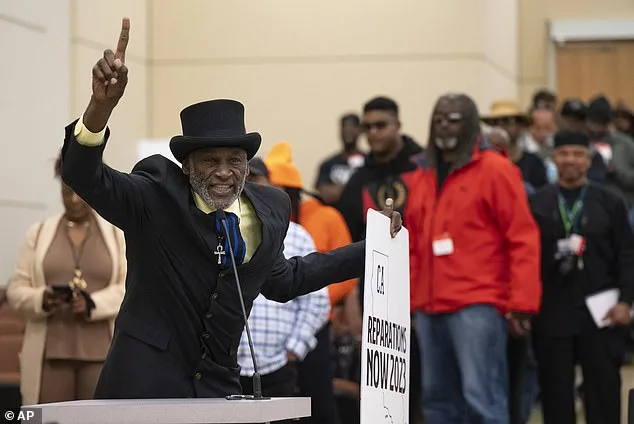
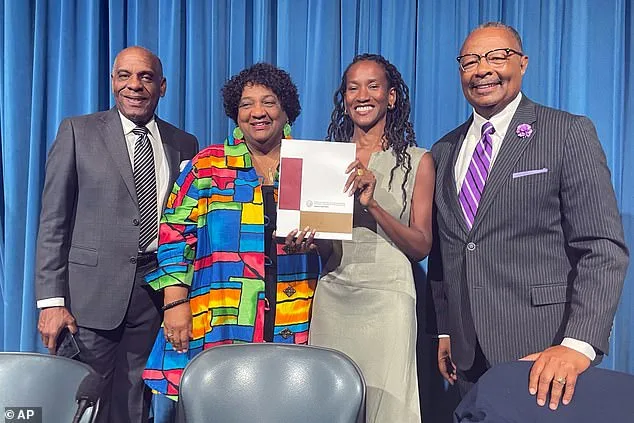
There were high hopes for the task force — 80 percent of voters approved its creation in a ballot measure in 2021.
Even when task forces roll up their sleeves and get to work, progress can be hard to discern.

California‘s first-in-the-nation reparations task force held emotionally-charged meetings for two years before greenlighting last May more than 100 proposals for overturning past sins.
The state’s descendants of slavery could expect payments of as much as $1.2 million, it was reported at the time.
On Wednesday, the state’s black lawmakers introduced a package of 14 bills backtracking on those plans.
Their proposals made no mention of cash reparations.
Instead, they called for the state to apologize for its role in slavery, to ban involuntary servitude in prisons and to return property officials had unfairly seized from black families.
Critics pounced on the U-turn.
‘This package does NOT include any cash payments to foundational black Americans at all,’ Internet personality Tariq Nasheed posted on X/Twitter.
‘It’s a ‘111-page nothing-burger, dipped in nothing-sauce.’
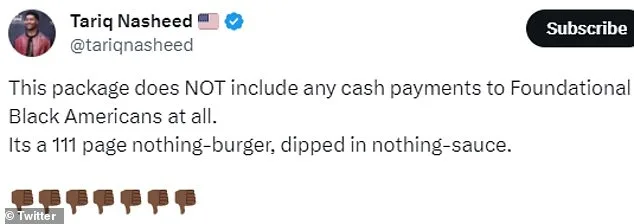

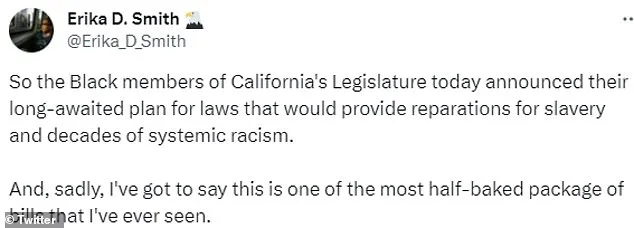
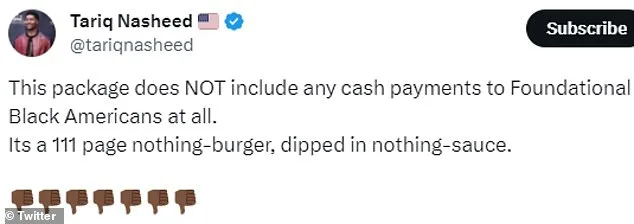
Law scholar Jonathan Turley added that voters could well see it as ‘bait-and-switch given the building expectation of huge cash awards.’
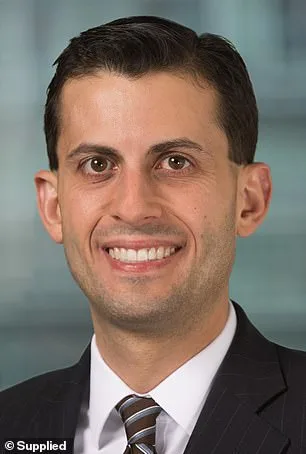
California Gov Gavin Newsom, a Democrat, has signalled that he did not support cash reparations payouts, especially when the Golden State is struggling with a $38 billion budget shortfall.
While popular among black Americans, the other groups who would foot the tax bill are less keen.
A survey last year of 6,000 registered California voters found that only 23 percent supported cash reparations, while 59 percent were opposed.
Public attitudes have only hardened since then.
Conservatives are pushing back against all types of DEI efforts and affirmative action policies.
Giving a leg-up to one group inevitably means another loses out, the critics say.
And while black Californians would like to receive payouts, very few of them believe they ever will.
A Washington Post-Ipsos poll last year found that three-quarters of black people said the descendants of slaves should get government compensation.
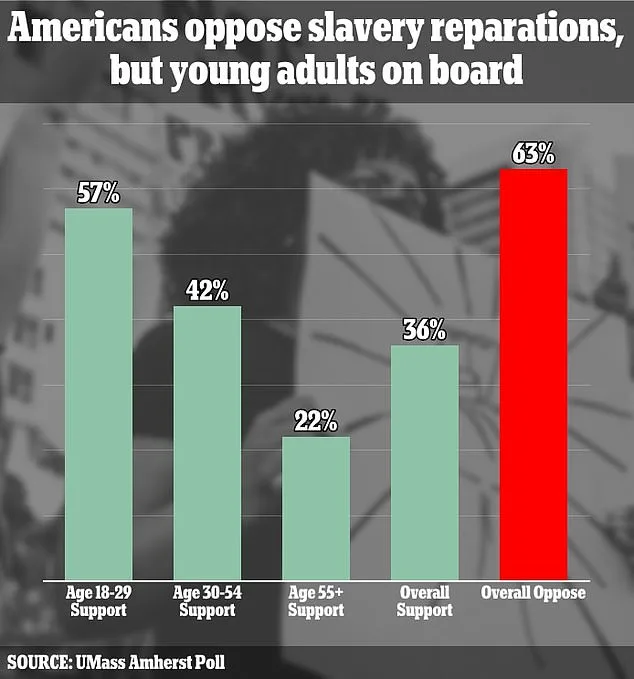
But only 14 percent expected to see any in their lifetimes.
Chris Lodgson, from the Coalition for a Just and Equitable California, says it is a ‘big challenge’ to get black Californians enthused about cash reparations.
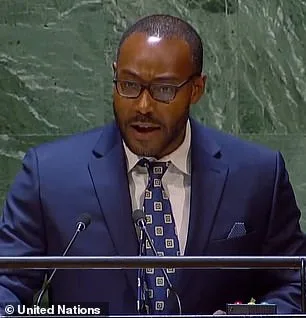
They just ‘don’t think it’s gonna happen,’ Lodgson says.
Some reparations activists see the writing on the wall and have scaled back efforts to get US lawmakers to act.
Justin Hansford, a professor at Howard University School of Law, wants the UN to lead the charge instead.
He and colleagues from the University of Pittsburgh and Columbia University want the UN Permanent Forum on People of African Descent to launch a global reparations tribunal.
A UN court ruling could pressure the US to pay $5 million to its black citizens, he says.
The multimillion dollar sum is ‘on the low end of what’s appropriate’ for their ‘horrific’ oppression, he told DailyMail.com.
His long-shot effort underscores how reparation payouts are unpopular among non-black US taxpayers and have little chance of becoming federal law, leaving advocates scrambling for a workaround.
Alex Nowrasteh, an analyst at the Cato Institute, a libertarian think tank, said activists were finally understanding the lack of public support for a large-scale compensation package.
‘Every reparations proposal was wildly impractical,’ Nowrasteh told DailyMail.com.
‘It’s good to see that realization finally catch up with reality.’
For Gonzalez, co-author of the forthcoming book NextGen Marxism, the logic underpinning cash reparations is flawed.
‘Reparations do not pass the tests of justice, morality, logic, ethics or efficacy,’ he said.
‘They would inevitably lead to absurdities such as a wealthy black neurosurgeon receiving reparations out of tax money paid by a poor white sharecropper.’


